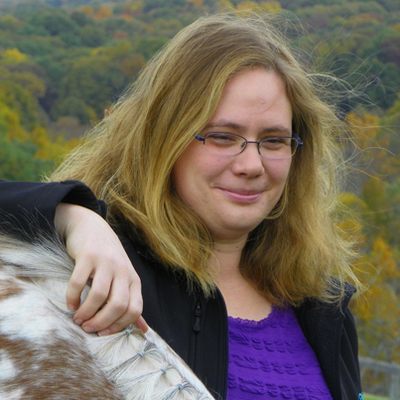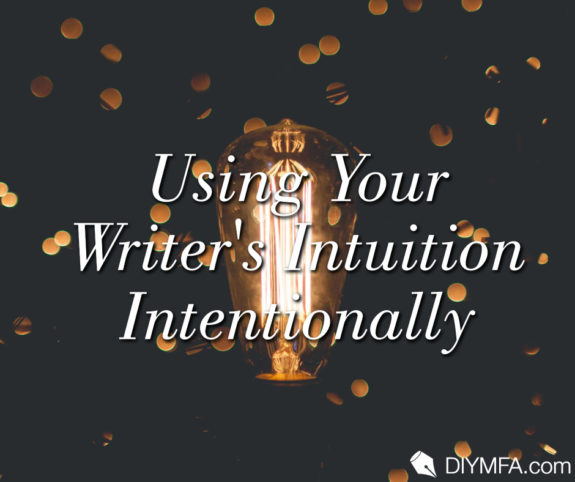In my previous article, I took you through the steps of starting a daily routine that will help you become more aware of yourself and your Writer’s Intuition.
I want to tell you a secret about my own experience with this exercise. When I first started, I had a grand plan of taking my daily data and creating a beautiful graph in Excel that would reveal the secret inner workings of my mind. What actually happened is that, about a month in, I realized I didn’t need the beautiful graph. While the data was important for giving my routine structure and to help my comparison from day to day, the most important thing I got out of it was the general awareness of myself.
As I progressed with this daily routine, I found it easier to apply it to my writing even though I was not tracking anything specific from day to day. Thanks to my daily habit I became aware enough that I finally noticed what my Writer’s Intuition was telling me: I was happier writing in the mornings, I need to have no distractions when I’m writing new words, and I love revision. I had always “known” these things, but now I could actively work toward writing in the situations and places that helped me be the most productive. That is when my Writer’s Intuition really took off because I could more easily separate problems with writing from problems with myself.
Let’s discuss how to use your Writer’s Intuition to help when you get stuck in your writing…
Figure out where the problem is.
Most often when I get stuck writing, I ask myself one simple question first: What is the exact problem keeping the story from moving forward? A lot of people know there’s a problem but aren’t able to narrow it down any further. “There is a problem” doesn’t really give you much direction. So read over the section, the page, or the story again and this time listen to what your Writer’s Intuition is trying to tell you. Try for a definition such as, “The character isn’t doing what I want here,” “There’s no way to get them out of this situation” or “This plot point doesn’t make any sense because of this other thing.”
At first you might have trouble defining the problem, but again, the more mistakes you make and the more times you get stuck, the better your Writer’s Intuition will get at telling you where the problem is. That being said, your brain knows when it can’t focus on writing, but it doesn’t always tell you in an easy-to-understand way. Sometimes you might get stuck on your story for a reason that has nothing to do with the story.
If I can’t come up with a specific problem with the story, then my Writer’s Intuition might be telling me the problem isn’t with the story. That means the stuck spot might actually be me. Maybe I’m worried about something at work, perhaps I didn’t get enough sleep the night before, or today could just be a self-care day due to my depression. If this is the case, then I take a step back from my story to take care of my own needs so I can come back when I’m at my best.
When you have identified the stuck spot in your story, even if you’re not 100% sure you have it right, it’s time to…
Dive into your toolbox
Sort through all the writing skills and exercises you have accrued over your writing time. I’m not going to go into any specifics here, since that’s not what this article is about, but think of the ways you have dealt with this problem in the past. If you haven’t dealt with this specific issue before, or if what you’ve tried isn’t working to fix the problem, then head to the Internet. Ask your writer friends if they have suggestions, search for the problem and see what kind of articles come up, or take a writing course based around the problem you’re having.
You will make mistakes. You might think you’re having trouble writing because you’re worried about your spouse’s job, but it’s really a plot problem. You think a character has a motivational issue, but it’s really that your well is empty and you need to recharge. Your Writer’s Intuition can just be wrong, because you can’t know everything. My advice to you is…get used to being wrong. It happens to everyone. But don’t let that discourage you from trying! Making mistakes is how humans learn; it’s how we hone our skills and develop our Writer’s Intuition. Plus, if everything went perfectly all the time, that would make for a pretty boring story.
And always remember to…
Trust your Writer’s Intuition
Writing a book is a marathon, not a sprint. Don’t think you have to solve a problem right away if it’s giving you trouble. If you can’t define the problem, or if you try a few things and it still hasn’t helped, then it’s fine to take a step back. Go take a walk, do the laundry, play with a pet, read a book. Your Writer’s Intuition will continue working on the problem subconsciously, because that’s just what it does.
Of course, this doesn’t mean that it always comes up with the perfect fix. Your Writer’s Intuition is a compilation of all of your experiences. If you’re continually pushing yourself to be a better writer, you’re going to run into problems you’ve never had before. Don’t let these stop you. Sometimes I have problems in my story that I simply don’t have the skill to fix yet. In that case, all you can do is keep going, and keep learning, and work on fixing it in the next draft. Your Writer’s Intuition will continue to expand and grow.

Laura Highcove has a degree in computer science, which is obviously why she is a fantasy writer. She is influenced by anime, video games, table-top gaming, programming, horses, and Norse mythology in no particular order. She currently lives in beautiful Blacksburg, Virginia with her computer, two cats, and husband. Her psychic abilities have not yet developed, but she remains hopeful. If you’d like to learn more about her, head over to her website and sign up for her newsletter (and get a free short story) here.







